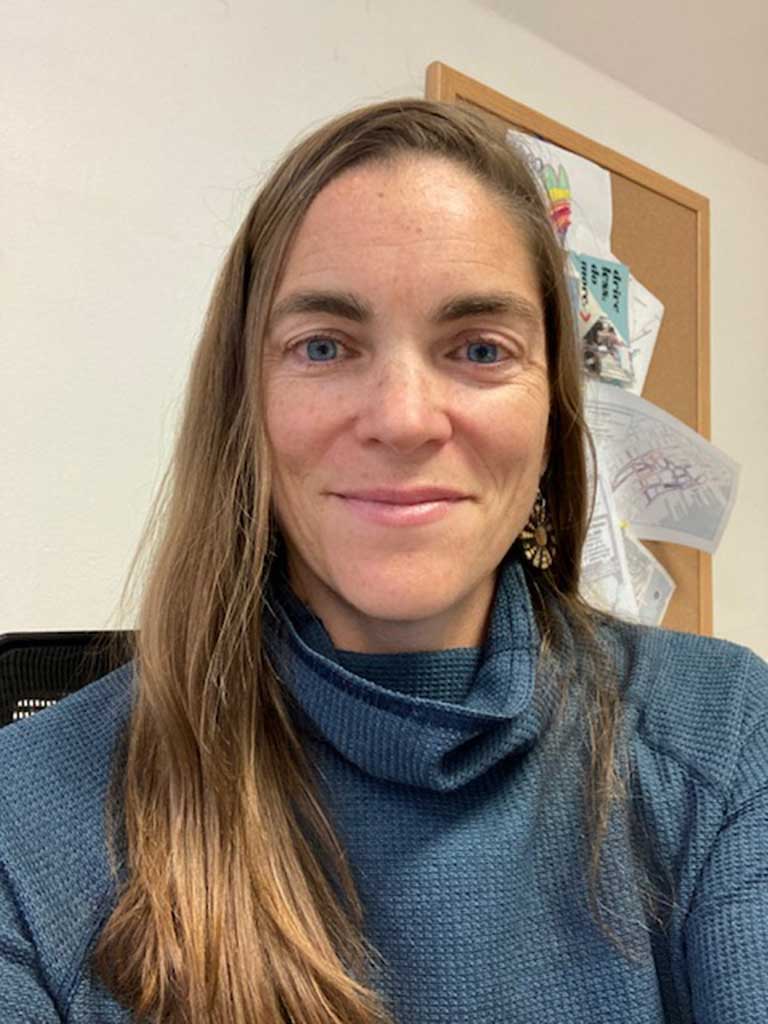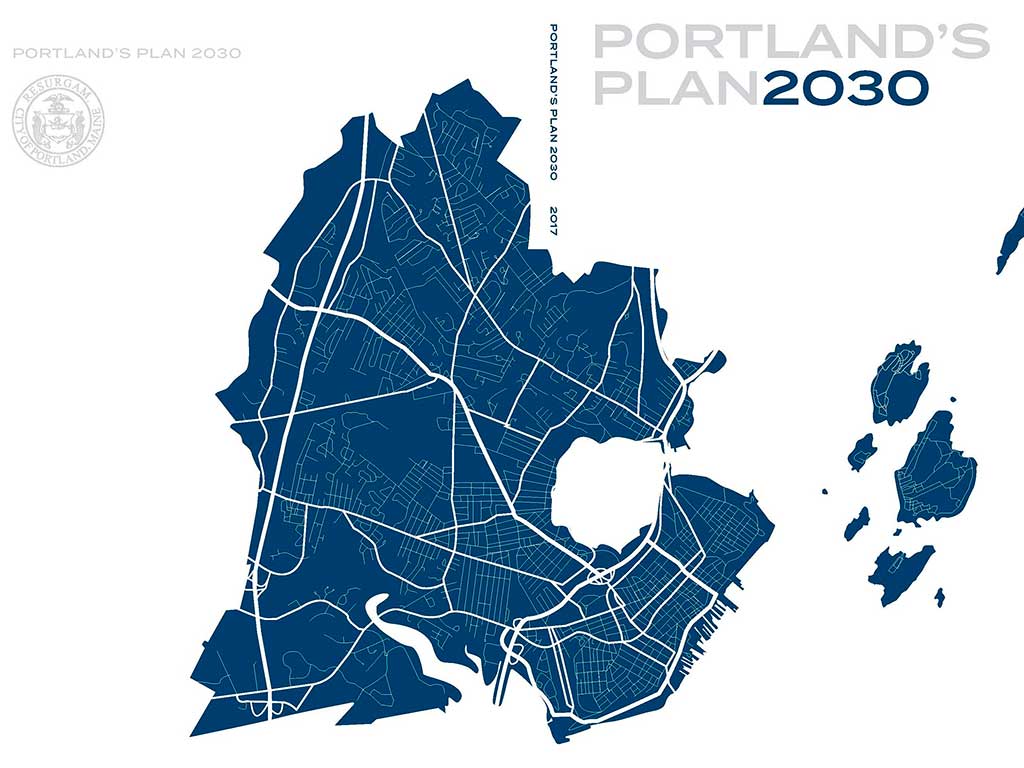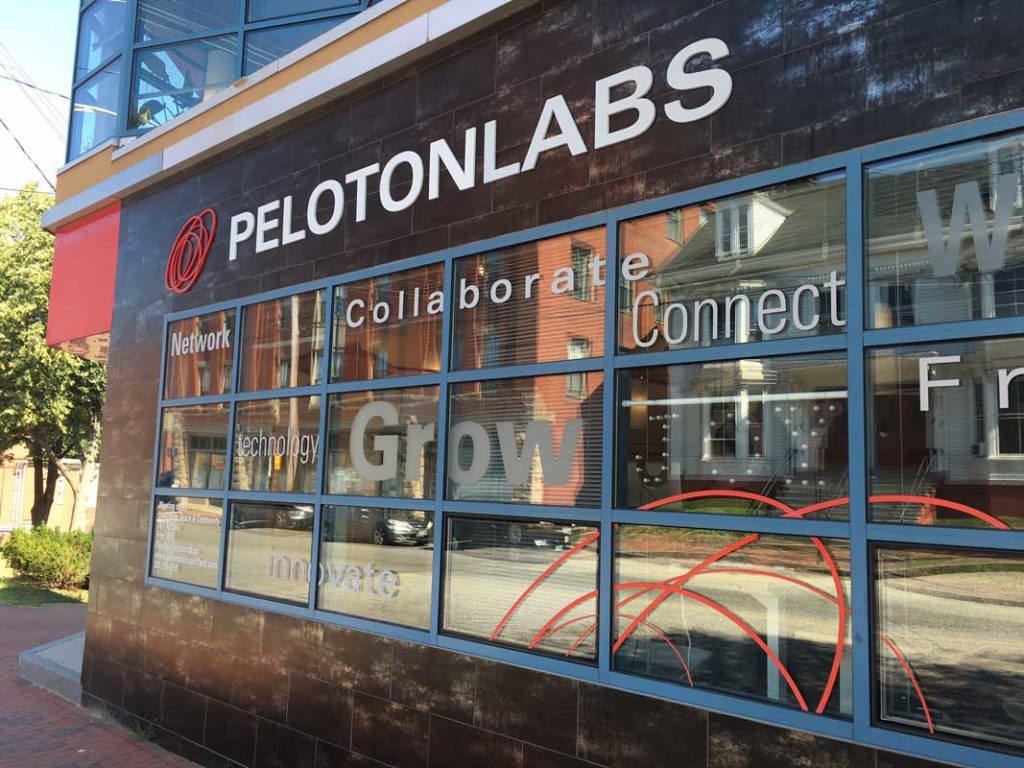
Nel Donaldson: Using Recode to Implement Portland’s Vision for a Green & Equitable Future
Every month PelotonLabs co-founder Liz Trice interviews a local community member. This month, Liz caught up with Nel Donaldson, Director of Special Projects for the City of Portland. She is leading ReCode Portland, the process to bring high level goals from the City’s comprehensive plan into the ordinances that govern land use and development.
What is the ReCode and how did we get here?

The ReCode is a two-phase effort to rewrite the land use code for the City of Portland.
There were several hundred people and dozens of meetings involved in writing the city’s last comprehensive plan, “Portland’s Plan 2030,” which the Council adopted in 2017 to set a modern vision and broad policy goals for the city. There are also many transportation plans that have been developed, and now we have the One Climate Future plan. By state law, every town’s land use code is supposed to be consistent with the comp plan, but Portland’s hasn’t been updated in a comprehensive way in a long time. This is what ReCode is about – implementing the comprehensive plan.
Phase 1 of Recode was focused largely on restructuring the code to make it easier to use. It had been amended so many times that it was difficult to navigate and administer. Phase 2 is designed to make sure that the land use code actually accomplishes the big policy goals that the public and council have for the city. It’s tricky, because everyone can understand wanting to do something about climate change, but how does that translate into the land use code – do you decrease the minimum lot size or required setbacks of buildings from a street? How does the city actually encourage more people to walk or bike?
Give some examples of the broad policy goals the new ordinance will try to address. Housing? Transportation? Climate?

“Portland’s Plan” sets goals around providing diverse housing types to people of all ages and incomes, and the plan strongly asserts that the city’s population should be growing. Some ways to allow more housing within the land use code might be to reduce minimum lot size for new homes, to allow increased density on existing lots, and to allow multi-unit buildings in more neighborhoods. There’s some good housing data on the ReCode website that shows what housing we’re seeing built and where.
To address some of the climate impacts of new development, one small example is that we can specify how much impervious surface is allowed on a lot. Both roofs and paved areas can reflect heat and create run-off that can cause erosion and pollutants, so we want to reduce those surfaces, handle stormwater well, and create tree canopy and green roofs for shade in the summer.
Complete neighborhoods is another strong theme of “Portland’s Plan.” It’s the idea that everyone should be able to walk and/or bike to home, schools, parks, stores – the basic necessities of daily life. Matt Grooms in our office has analyzed complete neighborhoods in the city – you can see the maps of gaps on the ReCode website (www.recodeportland.me). Recommendations to encourage more Complete Neighborhoods might include revising residential zoning to allow for appropriate, small-scale retail uses or creating more neighborhood business zones.
GPCOG’s Transit Tomorrow and Transit Together studies are looking at how to make transit easier across the region. We’re looking at where to allow density and mixed-use zoning to work well with the evolving transit system.
How can people get involved?
We hired a consultant, Camiros, who specializes in this type of work, to conduct a Land Use Code Evaluation report which makes a list of potential recommendations for changes to the land use code, based on the policy goals of “Portland’s Plan.” There’s also a short video and summary document of the code evaluation on the ReCode website. Anyone can add comments to the code evaluation online. We presented the code evaluation to the Planning Board in January, and on Wednesday, February 9th there will be a Council workshop on ReCode Phase II.
We will release a brief survey on the Code Evaluation recommendations in February. We’re also planning a public zoom event where people can hear recommendations and give public feedback. In the meantime, if community members are interested in learning more about ReCode, you can explore our website, www.recodeportland.me, and join our mailing list there. We’re also willing to meet with community organizations about ReCode.
More information:
Portland Comprehensive Plan: https://view.publitas.com/city-of-portland/portlands-plan-2030/page/1
Read the Land Use Code Evaluation on the ReCode website and give feedback: https://www.recodeportland.me/
Feb 9th Portland City Council Workshop: https://www.portlandmaine.gov/129/Agendas-Minutes

PelotonLabs is a coworking space in the West End of Portland, Maine with a mission to connect and encourage people working on their own to manifest their visions without fear.
PelotonPosts is created by PelotonLabs. WEN provides column space without charge. PelotonLabs has been a paid advertiser. WEN publisher and editor Tony Zeli is a coworking member at PelotonLabs.






1 Comments
Pingback: Todd Morse: Making Portland Livable - The West End News